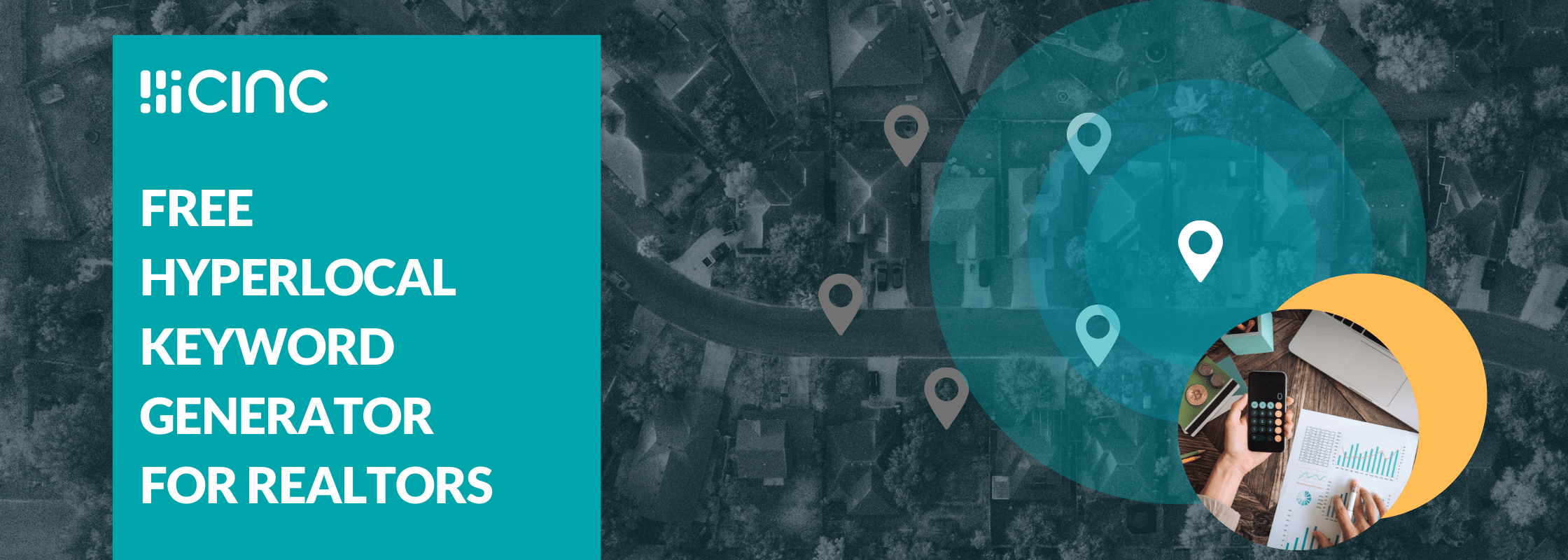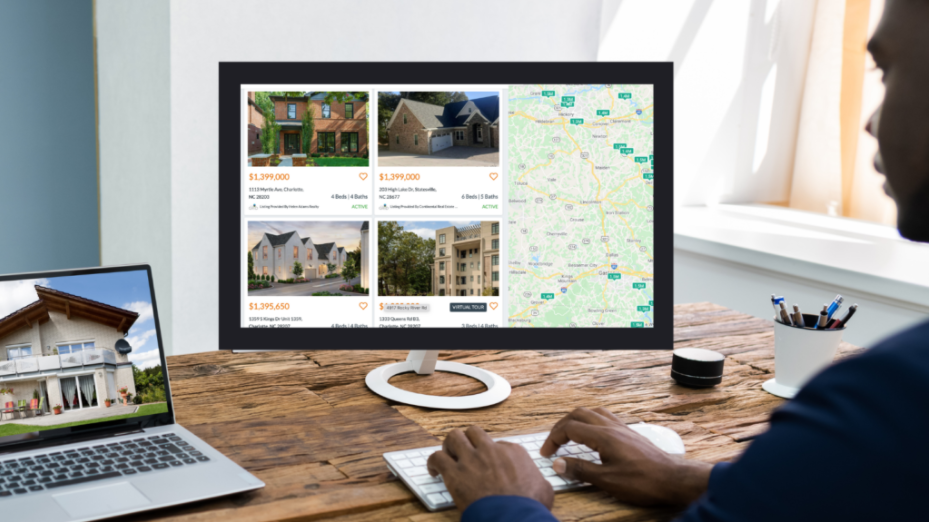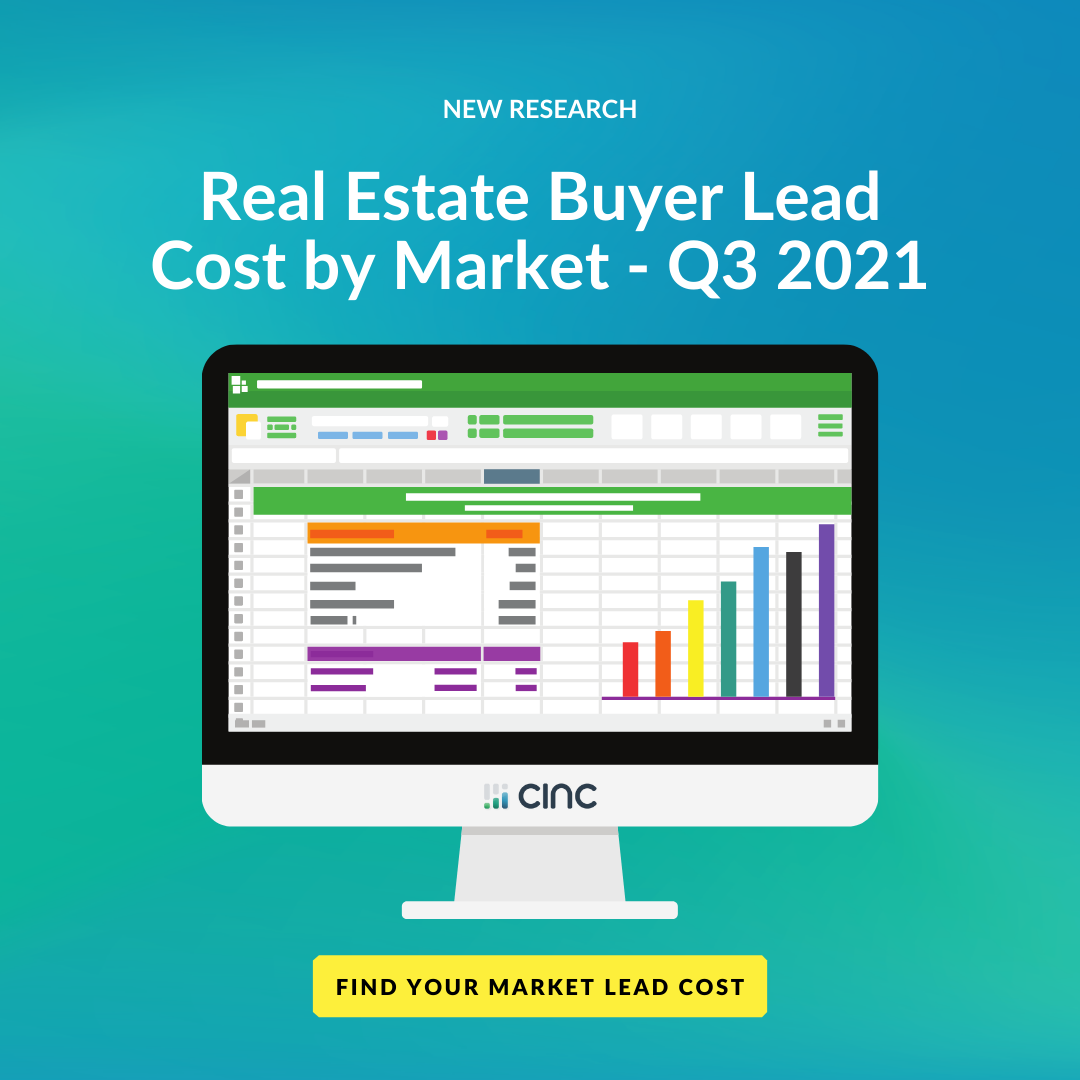Real estate professionals carry deep insights about the markets they serve – it’s part of what makes their sphere of influence grow over time. For instance, let’s say a buyer’s agent recently helped a newly married couple find their perfect house. After realizing the value the agent brought, the newly married couple then refers that buyer’s agent to their engaged friends. These key insights can now be unlocked in the online world using hyperlocal ads.
When you stop thinking about your market in general terms – the cities and counties that make up your market – and start thinking more specifically about the neighborhoods, zip codes, and points of interest you serve, you’re on your way to creating hyperlocal ads. These ads pair nicely within real estate agents’ search marketing program, according to Dan Lott. Lott serves as vice president of client marketing, overseeing the search marketing advertising for our clients.
When a real estate agent thinks about advertising online, they’ll come up with a list of about five to ten cities. “That’s a good way to start,” Lott says, “but there are benefits to going more granular with your search.”
The importance of hyperlocal ads in real estate
Real estate professionals who focus on smaller, more targeted areas compete against fewer fellow advertisers and can reach higher quality leads.
As the way we search the internet evolves, real estate teams are adjusting the way they compete for traffic online to include hyperlocal ads. Google searches including terms like “near me” have exploded in the past five years, as individuals now expect their location to be instrumental to their search experience.
Often, when clients begin using the CINC solution, they think about the market they serve from a city or county level.
“A lot of times clients will just ask for the major cities and counties without going into these hyperlocal areas,” Lott said. “We’ve started to incorporate hyperlocal advertising as part of our strategy.”
Getting started with hyperlocal in real estate
Thinking on a hyperlocal level means drilling down to more granular aspects of your market:
- Zip codes
- Neighborhoods
- Country clubs
- Points of interests
- Natural landmarks (lakes, mountains, rivers, etc.)
- Schools
- Regions
Real estate teams beginning their hyperlocal ad strategy should use a spreadsheet and brainstorm market-specific terms from each category. When it comes to hyperlocal advertising, it’s better to have unused options. Additionally, this list can come in handy the next time you’re looking to produce marketing collateral – you’ve already got a start on areas to target!
If you’re struggling to start, think about the houses you’ve helped your clients buy and sell in the last few months. What characteristics did those houses have? Where were they? Think about their criteria when they first began to look and go through your records of prior conversations. The better you can put yourself in the shoes of a potential buyer or seller, the better this list will be.
Hyperlocal ads produce high-quality real estate leads
If executed properly, hyperlocal advertising provides higher quality leads because their search indicates they may be a more informed buyer.
Consider two searches – “3-bedroom homes near Walton High School” versus “homes in Atlanta.” Out of the two searches, the first – an example of a hyperlocal search – likely delivers a lead closer to the bottom of the funnel. The search indicated they both know what they want and are more informed about the area around them and would be a great candidate to advertise.
“Getting our clients the most qualified leads for the lowest possible money is our primary focus. And hyperlocal ads have proven to be a vital part of our strategy. Without them, our clients’ cost per lead would be a lot higher.”
Because advertisers often aren’t allocating their budget towards searches like “3-bedroom homes near Walton High School,” this provides real estate businesses a unique opportunity to acquire a high-quality lead at a lower cost than average. The more agents can better understand their market and the granular keywords their potential buyers are looking for online, the better success they’re likely to have with hyperlocal advertising.
High-performing CINC clients leverage niches in their hyperlocal strategy, too. Niche ad groups further customize an area by adding a modifier. For example, if your hyperlocal strategy targets nearby lakes, a niche ad group could include “waterfront houses.”
“Ultimately, hyperlocal ads are often the first tool we use after we identify a client who isn’t performing well in a market,” Lott said. “Diversifying their search strategy often helps our clients in both the short- and long-term.”
The limitations of hyperlocal real estate ads
It’s difficult to create a campaign targeting hyperlocal characteristics like a neighborhood or zip code, however, because there aren’t enough people regularly searching for the specific terms.
“It’s a good way to augment the city and county level advertising,” Lott said. “You can use hyperlocal to drive down your cost-per-lead.”
Another factor to consider when thinking about your hyperlocal strategy is the volume of houses available in the areas you’re advertising. If you begin to advertise for traffic searching for houses available in a specific neighborhood, but there are no houses for sale in that neighborhood, it could lead to a disappointing experience for the potential buyer. Therefore, it’s important to keep tweaking your hyperlocal search strategy as the inventory changes.
“We have guidelines and best practices for how we’ll advertise using our solution,” Lott said. “If you have a landing page with very few houses on it, it won’t convert. We have found this to be true across the country, and it’s one of our core principles. If a neighborhood only has three houses for sale, for example, it’s not going to be a good target for hyperlocal advertising.”
Hyperlocal strategies are inherently narrow, making it important for real estate teams to calculate ahead of time the appropriate number of leads they’re likely to receive from each search term. This is why brainstorming as many terms as possible in the beginning can help expand the potential pool of leads, especially in smaller markets.
“Don’t expect to get 100 leads from targeting a neighborhood with four houses for sale in it,” Lott said. “This is a bit of a math exercise, and we walk our clients through this process when we do hyperlocal advertising. It’s crucial to set realistic expectations.”
Integrating hyperlocal ads into your real estate strategy
CINC’s data analysis and tools help optimize each dollar spent on search advertising. Our tools help clients identify the proper hyperlocal keywords based on search volume and cost-per-lead, so they can get back to what’s most important – converting their leads into profitable clients.
If your real estate team has yet to begin advertising online, the best place to start is to begin brainstorming hyperlocal terms to use in your future search strategy. As we discussed, a strategy solely dependent on hyperlocal ads will bring sporadic success, and needs to be paired with the consistent, high-performing broad terms.
“It’s crucial for real estate teams to diversify your search strategy with a combination of broad terms like counties and cities, along with hyperlocal, narrow terms like zip codes, school districts, and points of interest,” Lott said. “Broad groups capture a lot of traffic and provide consistent leads, and narrow hyperlocal groups capture niche-specific leads for driving down your cost-per-lead.”
CINC’s solution offers not only the ability to access Dan’s high-performing team of real estate search engine professionals, but also a suite of tools to help drive better opportunities, determine your database’s potential, and create authentic connections.

.png)


